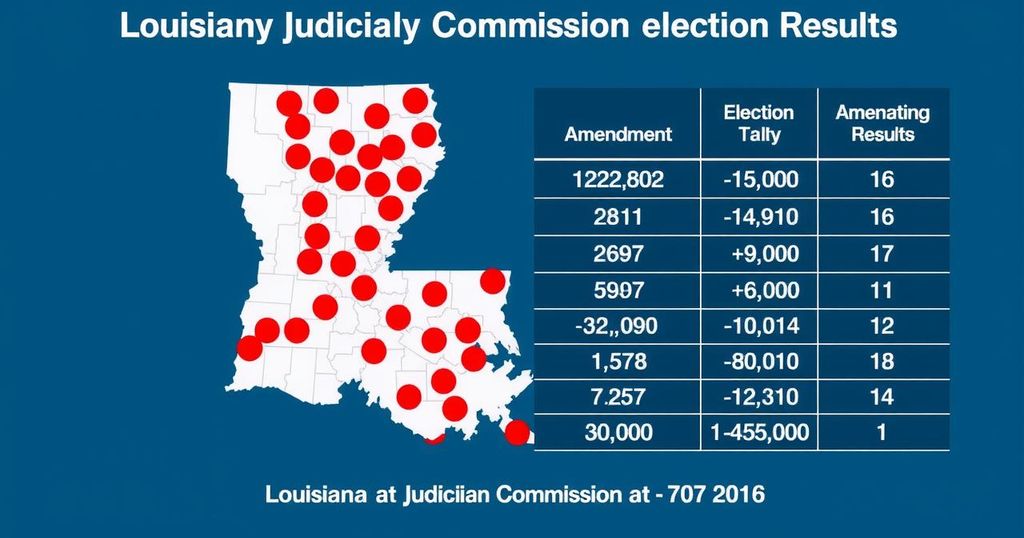Louisiana’s Amendment 1 Election Results: Potential Changes to Judicial Oversight

Louisiana’s Amendment 1 proposes to empower the state’s Supreme Court to discipline judges for malfeasance and directs the judicial commission to investigate judges. The results of the election are still pending, with no votes reported as of yet. Approval of this amendment would signify a pivotal shift in judicial accountability within Louisiana.
The Louisiana Amendment 1 election results are awaited with great interest, as it proposes significant changes to the state’s judicial system. If approved, this amendment would equip Louisiana’s Supreme Court with enhanced authority to oversee the behavior of sitting judges by including “malfeasance” among the miscellaneous offenses that could result in disciplinary action. Additionally, the Supreme Court would gain the capability to instruct the state judicial commission to undertake investigations concerning judges. This commission, which currently comprises nine members, would see an expansion with the addition of five appointees from political figures.
As the polls closed at 9 p.m. Eastern Time, total voting results remain unavailable as votes have not yet been counted. Local reporting from each parish indicates that voting data is still being compiled. The outcome of this amendment could have profound implications for the transparency and accountability of the judiciary in Louisiana.
Voters across numerous parishes, from Acadia to Winn, await numbers to clarify the sentiment regarding the amendment. Maintaining integrity within the judicial system is crucial, and this proposed amendment aims to enhance oversight through established mechanisms, thereby ensuring judges are held accountable for their actions and judicial conduct.
The Louisiana Amendment 1 is poised to amend the state’s judicial framework, primarily focusing on bolstering the Supreme Court’s authority over potentially errant judges. The need for reform arises from growing concerns regarding judicial misconduct, necessitating a mechanism that empowers courts to maintain higher standards of accountability. By incorporating “malfeasance” into punishable offenses and expanding the investigative powers of the judicial commission, this amendment seeks to clarify the system’s integrity, and strengthens the judicial process. Historically, judicial accountability has been a key concern, making this amendment a topic of considerable significance among legal scholars and policymakers alike.
In conclusion, the results of the Louisiana Amendment 1 election are significant as they hold the potential to transform the operations of the state’s judiciary. By expanding the Supreme Court’s authority and setting strict standards for judicial conduct, taxpayers and citizens may see enhanced accountability. As the voting outcome becomes clear, the implications for the Louisiana judicial system will warrant further examination and discussion among community stakeholders and legal experts.
Original Source: www.nytimes.com







